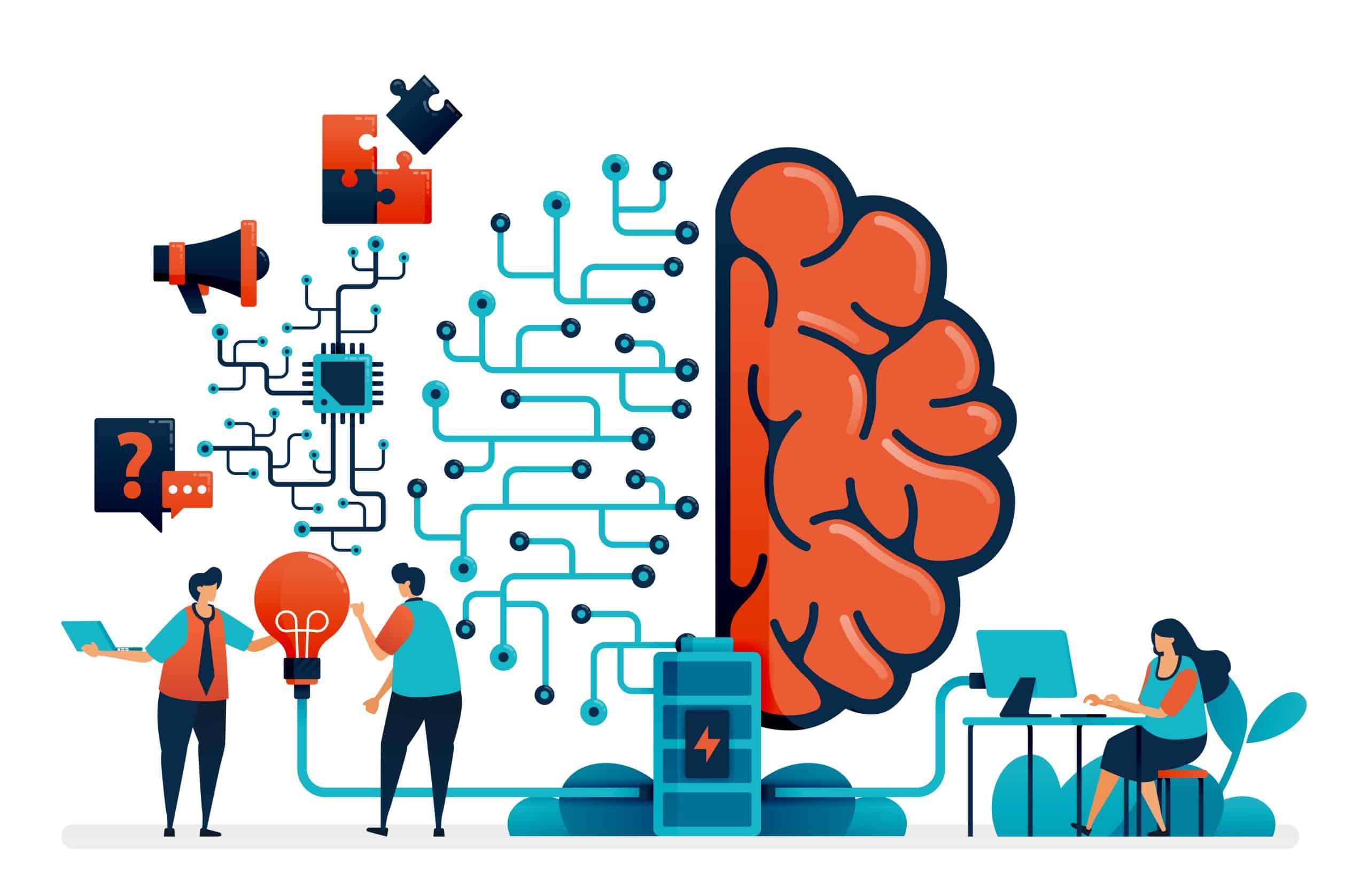- 🤖 AI transforms digital marketing through personalized customer experiences.
- 📊 AI-driven analytics offer real-time insights from vast amounts of data.
- 📈 AI helps businesses make data-driven decisions and predict future trends.
- 💬 AI-powered chatbots provide 24/7 customer support, improving efficiency.
- 🎯 AI enhances digital advertising with precise targeting and automated bidding.
- ✍️ AI aids in content creation and curation, saving time and resources.
- 🔮 Predictive analytics with AI anticipates customer behavior and market trends.
- 🔒 Implementing AI comes with challenges like high costs, data quality, and integration issues.
- 🏆 Embracing AI is essential for achieving long-term success in digital marketing.
In today’s rapidly evolving digital landscape, businesses must evolve continually to stay competitive and engage meaningfully with their target audience. One of the most transformative forces driving this evolution is artificial intelligence (AI). From personalization to predictive analytics, AI is reshaping digital marketing in unprecedented ways. This blog post delves deep into how AI is enhancing digital marketing and explores the benefits, applications, and challenges of integrating AI into your marketing strategy.
The Power of Personalized Customer Experiences
Artificial intelligence has the unique ability to create highly personalized customer experiences by analyzing user data to discern preferences, behaviors, and purchasing patterns.
How AI Personalization Works
AI leverages algorithms to process vast streams of data, pinpointing individual preferences based on historical behaviors and interactions. This enables marketers to:
- Tailor Content: Personalized emails, ads, and web content matching user interests.
- Recommend Products: Suggest products or services that align with user behavior, boosting satisfaction and conversion rates.
Real-Time Insights with AI-Driven Analytics
Harnessing AI for analytics allows businesses to derive insights with remarkable speed and accuracy, identifying trends and patterns that can enhance marketing strategies.
Benefits of AI-Driven Analytics
- Speed: Real-time analysis of large data sets that traditional methods can’t handle efficiently.
- Accuracy: Reduces human error, providing precise and reliable insights.
Data-Driven Decisions & Predictive Analytics
AI empowers businesses to make data-driven decisions and predict future market trends, staying ahead of the curve.
Key Applications
- Trend Identification: Recognizes which marketing channels generate the most traffic and conversions.
- Future Planning: Predicts upcoming market demands, helping businesses prepare strategically.
Enhancing Customer Support with AI-Powered Chatbots
AI-powered chatbots have revolutionized customer service by offering round-the-clock support and instant responses to customer inquiries.
Advantages of AI Chatbots
- 24/7 Availability: Always online, providing assistance irrespective of time zones.
- Efficiency: Handles routine queries, freeing human agents for complex problem-solving.
Precision in Digital Advertising
AI’s capability to analyze user data translates into more precise targeting and effective digital advertising.
How AI Transforms Advertising
- Audience Segmentation: Identifies the most relevant audience segments for different ads.
- Ad Optimization: Determines the best times to display ads and the most effective formats.
Streamlining Content Creation and Curation
Artificial intelligence aids in generating high-quality content rapidly and curating content to keep audiences engaged.
Content Creation with AI
- Automated Writing: Produces blog posts, product descriptions, and social media updates with minimal human input.
- Curated Recommendations: Suggests relevant articles, videos, and other media tailored to user interests.
Predictive Analytics in Marketing
AI’s predictive analytics anticipates customer behavior and market trends, enabling businesses to take proactive actions.
Use Cases
- Inventory Management: Foresees demand surges, allowing better stock preparation.
- Customer Retention: Identifies at-risk customers, fostering timely intervention with targeted promotions.
Challenges of Implementing AI in Digital Marketing
While AI offers numerous advantages, it also presents certain challenges that businesses need to address.
Common Challenges
- High Costs: Development and deployment require significant financial investment.
- Data Quality and Privacy: AI’s effectiveness hinges on high-quality data, necessitating rigorous data management and compliance with privacy regulations like GDPR.
- System Integration: Existing legacy systems may not be compatible with modern AI, requiring upgrades and adjustments.
Conclusion: Embracing AI for Long-Term Success
Integrating AI into your digital marketing strategy is not merely a trend but a strategic necessity for achieving long-term success. Regardless of your business size, AI can help you connect with your audience more effectively and meet your marketing goals with precision.







